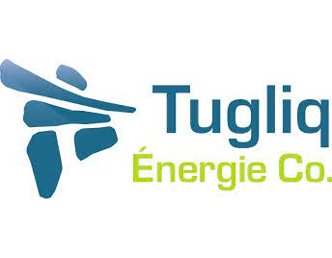123Fab #46
1 topic, 2 key figures, 3 startups to draw inspiration from

Given its impact on the environment, the mining industry is challenged to become green, or at least as sustainable as possible for an extraction company. Drilling changes landscapes and biodiversity, generates waste, uses large amounts of water and polluting machinery, and the mine environment is dangerous to work in. And this is all the more problematic because most of the products used in the world depend on the mining industry, from the pipes in our homes to the materials in our smartphones. It also plays a key role in sustainable transformation, producing, among other materials, lithium for electric car batteries, silica for solar panels, nickel for electrodes in hydrogen production. As the mines are often located in the emerging countries of the southern hemisphere and the extracted materials are most often used in the developed countries of the north, this accentuates the climatic debt of the “North” to the “South”.
However, some startups are looking at this issue to transform the mining industry into a greener and more sustainable activity.
Sustainable drilling technologies
The drilling phase has the most visible impact on the environment. Huge amounts of soil are moved, roads are built to make way for trucks and heavy machinery, and trenches are dug to divert water. Some startups have focused on designing new drilling methods that reduce the environmental disruption of this process. Earth AI uses artificial intelligence to locate prospective sites for rare materials and is patenting its “zero disturbance drilling hardware” to determine drilling parameters without prior groundwork. Novamera has developed Sustainable Mining by Drilling (SMD) technology, a surgical mining method that extracts ore but leaves waste in the ground. It drastically reduces emissions and waste and consumes less water than conventional drilling methods by recycling it.
Turning to renewable energy
Mining operations often take place in parts of the world that use fossil fuels to power their machinery. As a result, there is growing interest in renewable energy to reduce this significant portion of GHG. Independent energy producer Tugliq provides off-grid, autonomous power supply from solar, wind, and biomass that can be used for mining operations, lowering their dependency on fossil fuels and their carbon footprint. Raglan mine and Tuglic’s partnership has avoided the use of 10 million liters of diesel since 2014 in their Canadian arctic mining operations. Heliogen’s Heliopower solution generates electricity from sunlight to power mining operations with renewable energy. Two months ago, Rio Tinto announced a partnership with Heliogen to reduce their carbon footprint in their Boron mine, targeting a reduction of up to 24% in their CO2 emissions.
Effluent treatment
Part of the negative environmental impact of mining comes from wastewater, which, once used during the mining process, is polluted and difficult to dispense or treat. Some startups like Auxilium Technology Group are addressing this challenge by treating mine effluents and wastewater, retrieving valuable materials such as heavy metals and rare earth elements, and limiting evaporation, thereby reducing the overall water consumption of the process. As for soil contamination, Allied Microbiota develops microbes that break down contaminants in the soil. Instead of moving contaminated soil to a landfill, it can be efficiently treated.
Zero carbon lithium
While some startups have designed greener mining processes, others have developed their own sustainable mining technologies. Lithium, for example, is critical to the transition to electric mobility. Yet conventional mining techniques release a lot of greenhouse gases and use a lot of water. In addition, most of the lithium in Europe is imported, which adds transportation-related emissions. Vulcan energy, GeoCubed, and Cornish Lithium offer zero-carbon production of lithium and geothermal electricity production by extracting a lithium-rich geothermal brine before harvesting the lithium and re-injecting the brine. Because the brine is at a high temperature when pumped at the surface (~165°C), the heat is used to provide geothermal electricity, so the entire process produces more energy than it consumes.
To conclude, the mining industry has yet to be fully transformed. Although a few startups are positioned in the market, it remains complicated to enter given the high upfront capital expenses required. But consumer expectations are putting increasing pressure on players to become more sustainable. Ultimately, recycling remains a solution to reduce mining-related emissions, while improving the lifespan of these materials, reducing the reliance on extraction in developing countries and avoiding emissions related to the transportation of raw materials around the world.
2 Key Figures
35 sustainable mining startups
registered by Tracxn
Green mining market expected to reach $12.9 Bn by 2024
The sustainable mining market was estimated at $9 Bn in 2019 and is expected to reach $12.9 Bn by 2024, at a CAGR of 7.5%
3 startups to draw inspiration from
This week, we identified three startups that we can draw inspiration from: Tugliq, Allied Microbiota , and Cornish Lithium.

Tugliq
Tugliq Energy is a Montreal, QC based private company whose line of business is Electric services. TUGLIQ is a specialist Independent Power Producer (IPP) focused on remote and complex energy diversification for off-grid and/or hybrid applications with solutions tailored to the mining industry, remote villages and islands.

Allied Microbiota
Allied Microbiota developed biotechnology products designed to clean-up environmental contamination. The company’s products are microbes and their enzymes to create sustainable bio-chemicals, enabling customers to use such microbes for environmental and industrial applications to break down pollutants and reduce contamination.

Cornish Lithium
Cornish Lithium is a UK based startup operating a lithium mining and exploration company intended to provide environmentally sustainable extraction of lithium. The company’s services aim to create a new, environmentally-responsible, lithium extraction industry, enabling clients to have sustainable products essential for the transition to a green economy.
